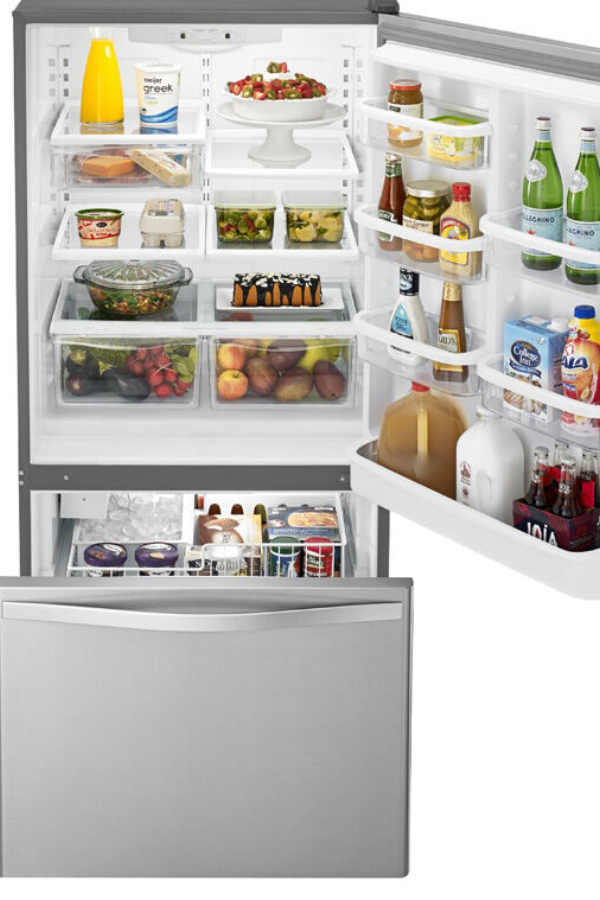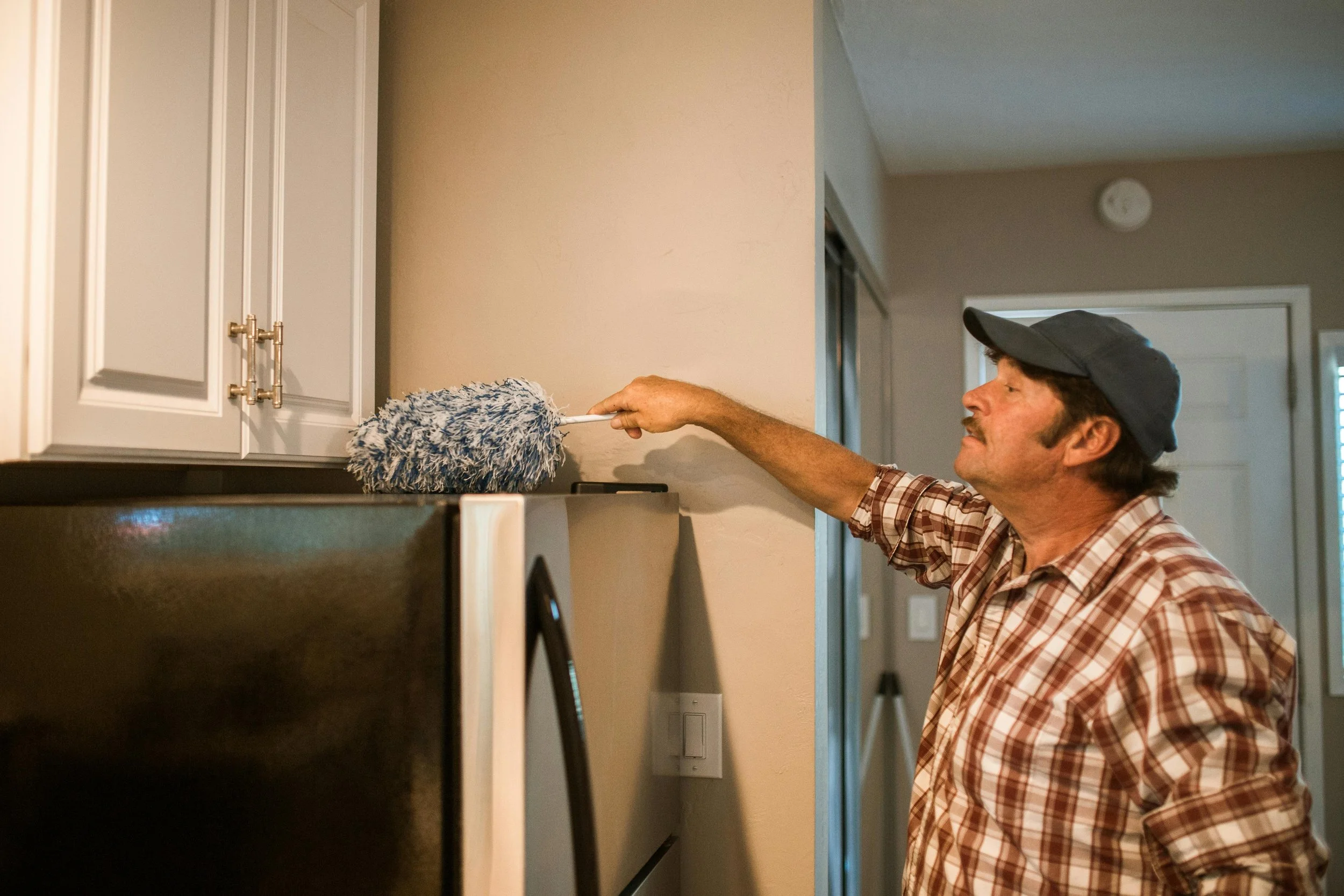From freezer myths to A/C habits, here’s how smart homeowners protect their investment.
Let’s be honest—most of us don’t think twice about our fridge, freezer, or air conditioner until something breaks, or our energy bill suddenly spikes. But small habits can quietly impact the way these appliances work, especially when it comes to cooling your home and keeping your food fresh.
From overpacking the fridge to trusting the thermostat a little too much, there are a lot of common misconceptions still making the rounds. The good news? With just a few smart shifts, you can boost efficiency, extend the life of your appliances, and keep things running smoothly—without waiting for something to go wrong.
🧊 Refrigerator & Freezer Myths Debunked
Temperature Dial ≠ Exact Temp
Rather than trusting the dials on your refrigerator, take the time to get a thermometer. The dials that most fridges have aren’t precise readings, so it’s hard to tell if your fridge is cold enough. (And no, despite what you’ve been told you can’t ‘feel’ the right temperature.)
Empty Space in Fridge = OK
It’s ok to have space in your fridge! Rather than overpacking your fridge, leave some space throughout. This is better for airflow, which keeps your fridge both cooler and more efficient.
Regular Maintenance is Essential
Your fridge is one of the appliances in your home that absolutely needs regular maintenance. Take the time to clean the condenser coils, check the seals and double check the airflow. Doing so ensures a longer lifespan.
Refreezing Food is Safe (if Properly Handled)
Provided your food has stayed at a safe temperature, which is going to vary from food to food, it will be safe to refreeze it after it thaws.
Coldest Setting ≠ Better Preservation
Keeping your fridge colder, isn’t always better. Many foods will freeze if your fridge is too cold, and it will affect the taste and texture. Instead, try keeping your fridge between 37 & 39 *F.
Not All Produce Belongs in the Fridge
Some produce is damaged by the cold of your fridge, and instead needs to be stored in a cool, but not cold place. Some examples are bananas, tomatoes, onions and potatoes. All of these will last longer if they’re allowed to stay in a pantry.
Fridges Still Need Cleaning
Just because your fridge is cold, doesn’t mean it’s free from bacteria. In order to keep your fridge clean and free from smells, make sure to clean the shelves and wipe up spills regularly.
Frozen Food is Often Just as Nutritious
Frozen produce is often picked at peak ripeness. Long-term storage can degrade nutrients, but it's still a strong option.
Freezing Food Doesn't Reduce Quality (if done right)
Frozen produce is often picked at peak ripeness and then rushed to be flash frozen for the best taste and texture. To take the best care of your food, use airtight containers or vacuum seals.
Most Things CAN Be Frozen
Most foods can actually be frozen. They might require some prepping, like blanching, ahead of time, but most foods can be frozen without trouble.
Air Conditioning Myths Debunked
Lowering the Thermostat Won’t Cool Your Home Faster
It’s tempting to crank the thermostat way down on a hot day—but it won’t speed things up. Air conditioners cool at a steady pace, no matter what number you set. Setting the temp too low just overworks the system, wastes energy, and could even cause the coils to freeze.
Don’t Turn Off the A/C When You Leave for the Day
Shutting off your air conditioning completely while you’re out might sound like a money-saver, but it actually takes more energy to cool your home back down from scratch. Instead, raise the thermostat by 10 to 15 degrees when you leave—just enough to save energy without overheating your space.
Closing Vents in Unused Rooms Doesn’t Save Energy
Closing off vents in rooms you’re not using seems like a smart move, but it can actually throw off your system’s airflow. This creates pressure that makes your A/C work harder and less efficiently. Keep vents open to help air move evenly throughout your home.
It’s Not the A/C Making You Sick—It’s What’s Inside It
A properly maintained A/C system won’t make you sick. But a dirty filter or mold buildup definitely can. Poor indoor air quality can lead to allergy flare-ups and other respiratory issues. The solution? Regular filter changes and occasional deep cleaning to keep your air fresh and healthy.
Bigger Isn’t Better When It Comes to A/C Units
A larger unit isn’t necessarily more effective. If your A/C is too big for the space, it will cycle on and off too often without properly removing humidity. If it’s too small, it will struggle to keep up. The best performance comes from a unit that’s sized just right.
Fans Don’t Cool Rooms—They Cool People
Ceiling and standing fans don’t actually lower the temperature in a room. Instead, they move air around to create a wind-chill effect that helps you feel cooler. That’s why it makes sense to turn fans off when you leave a room—they’re not doing anything unless someone’s there to feel it.
A New A/C System Doesn’t Guarantee Lower Bills
Replacing an old system can improve efficiency—but only if it’s properly matched to your home. An oversized or undersized unit will still waste energy. Before making a big purchase, have a professional evaluate your space and recommend the right size and type for your needs.
Turning the A/C On and Off Throughout the Day Isn’t Efficient
It might seem smart to shut the A/C off when you’re not home, then flip it back on when you return—but that start-and-stop cycle uses more energy in the long run. It’s more efficient to set a steady temperature, or use a smart thermostat to make small, automated adjustments throughout the day.
Air Leaks Can Undermine Your Cooling
Even with doors and windows closed, cool air might still be escaping. Cracks around outlets, old window frames, or cable holes can all cause slow leaks. If your home feels harder to cool than it should, a professional energy audit can help you track down the problem spots.
Your Air Filter Needs More Frequent Changes Than You Think
Don’t wait a year to change your filter. Depending on your household—pets, allergies, or just everyday use—you should swap it out every one to three months. A clean filter helps your system run more efficiently and keeps the air inside your home healthier.
Where You Place Your Outdoor Unit Matters
If your A/C unit sits in direct sunlight or near heat-producing appliances, it’s going to work harder than it has to. Ideally, the outdoor unit should be in a shaded spot with room to breathe—good airflow helps it perform better and last longer.
Basic Upkeep Isn’t a Substitute for Professional Maintenance
Wiping down vents and changing filters are great habits, but there’s more going on inside your system than you can see. Regular professional maintenance helps catch small issues before they turn into expensive repairs—and keeps your system running at peak performance year after year.
Keeping your cool—literally—comes down to knowing how your appliances work and giving them the care they need. Whether it's clearing a little space in your fridge, cleaning those often-forgotten coils, or skipping the extreme thermostat settings, these small updates can make a big difference.
And if your fridge, freezer, or other major appliances are acting up, the team at Appliance Rescue Service is here to help. We specialize in appliance repair and maintenance—not HVAC systems—but if you're in the Frisco, Dallas, or Allen area, we’d be glad to get your kitchen or laundry room back in working order.
Because comfort at home shouldn’t come with surprises—or sudden breakdowns.
Call: (214) 599-0055
Additional Reading
Demystifying Refrigerator Types: Choosing the Perfect Fit for Your Home
Household Hauntings: The Frightening Reality of Appliance Neglect
37 Reasons To Have Your Appliances Maintained Regularly


